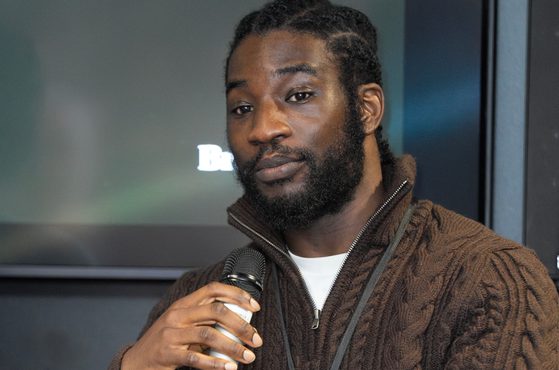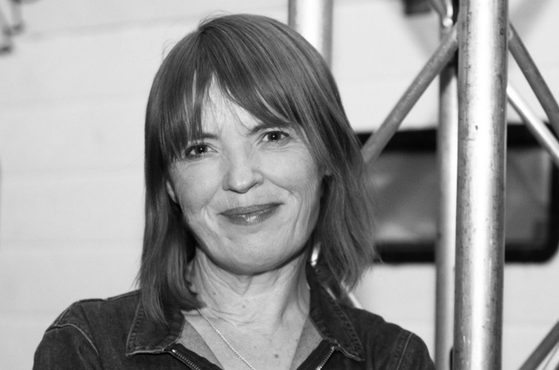True North: Northern Star — Samuel Remi-Akinwale

Samuel Remi-Akinwale is the CEO of Young Manchester, a youth-led partnership organisation that champions opportunities for young people across the city.
Read more
We make the difference. Talk to us: 0333 004 4488 | hello@brabners.com
Chelsea Slater is the co-founder and CEO of InnovateHer, an organisation on a mission to support girls and non-binary teenagers into the tech industry.
Founded in Liverpool in 2017, InnovateHer has already supported over 80,000 students through free e-learning, school programmes and role-model encounters, equipping young people with valuable digital skills. At the same time, it works with businesses — including the likes of Co-op, MoneySuperMarket and BAE Systems — to embed diversity and inclusivity into their organisations.
We sat down with Chelsea to hear her thoughts on building a more inclusive and future-ready workforce.
My journey into this space began with Liverpool Girl Geeks, a community I set up after realising how few women were represented in tech. I’d been the only woman in my workplace and it was that experience that drove me to act — not only for women entering the workforce, but for the next generation.
At InnovateHer, we now work with students as young as seven to build confidence, teach digital and tech skills and introduce role models. This isn’t just about teaching them to code — it’s about showing girls and non-binary young people that they belong in these spaces.
The results have been significant. One school we worked with reported a 300% increase in girls choosing computer science GCSE after our intervention. A proactive approach is transformative — when you start early, change becomes exponential.
That goes for businesses as well as schools. If you want a stronger talent pipeline, invest upstream. Partner with schools, open up apprenticeships or engage with ministers and education leaders. The earlier you do so, the greater the return.
When we work with companies, we don’t just focus on hiring practices. Inclusion has to be embedded into culture, strategy and leadership. That’s why our programmes train senior leaders, not just HR teams. We’ve delivered sessions on intersectionality, disability, menopause and period poverty — bringing in experts to open up conversations that many workplaces avoid.
We also create peer networks where businesses share openly what’s working, what isn’t and how to go further. With 24 partners across sectors, these networks build collective momentum. Inclusion stops being a compliance exercise and becomes a driver of productivity, innovation and retention.
Ultimately, diverse teams don’t happen because of policies — they happen when leaders are willing to be uncomfortable, listen and change the way they operate. Businesses that embrace this shift consistently report happier teams, stronger ideas and better results.
AI is reshaping the workplace at speed. Some see it as a threat — particularly for entry-level roles — but for the young people we work with, I’m actually seeing it lower the barrier to entry. You no longer need to be a full-stack developer to build products or prototype ideas. With the right mindset, curiosity and resilience, young people can use these tools in really imaginative ways to create, not just consume.
That said, we shouldn’t ignore concerns — specifically a gender gap — even in perceptions of AI. Our recent survey of over 500 students revealed that young women were more worried than their male peers and that girls leaned towards ethical questions while boys were more drawn to robotics and cyber.
This shows us two things:
We know that AI will replace some tasks, but that doesn’t mean it should replace the very human skills of creativity, empathy, imaginative problem-solving, ethical judgement or connection. Businesses who look at how to embrace these human attributes in their workforces — alongside technology — will thrive into the future.
Successful hiring is not just about finding the right person for a single role. You need to build a proactive strategy that ensures you have access to the best possible talent in your community.
Purpose only works if it’s lived consistently. Whatever external pressures you face, hold true to your values. They will sustain you when challenges arise.
If you’re starting out, build balance into your organisation from day one. Don’t wait until burnout forces you to. Your team will take their cue from you, so lead with wellbeing at your core.
Chelsea is just one of the members of True North who want to build something better — together.
If you’re committed to supporting the future talent of the North, join us.

Samuel Remi-Akinwale is the CEO of Young Manchester, a youth-led partnership organisation that champions opportunities for young people across the city.
Read more
Chelsea Slater is the co-founder and CEO of InnovateHer, an organisation on a mission to support girls and non-binary teenagers into the tech industry.
Read more

Claire McColgan MBE is Liverpool City Council’s Director of Culture & Major Events and has helped shape the city's cultural and economic transformations over the past two decades.
Read more